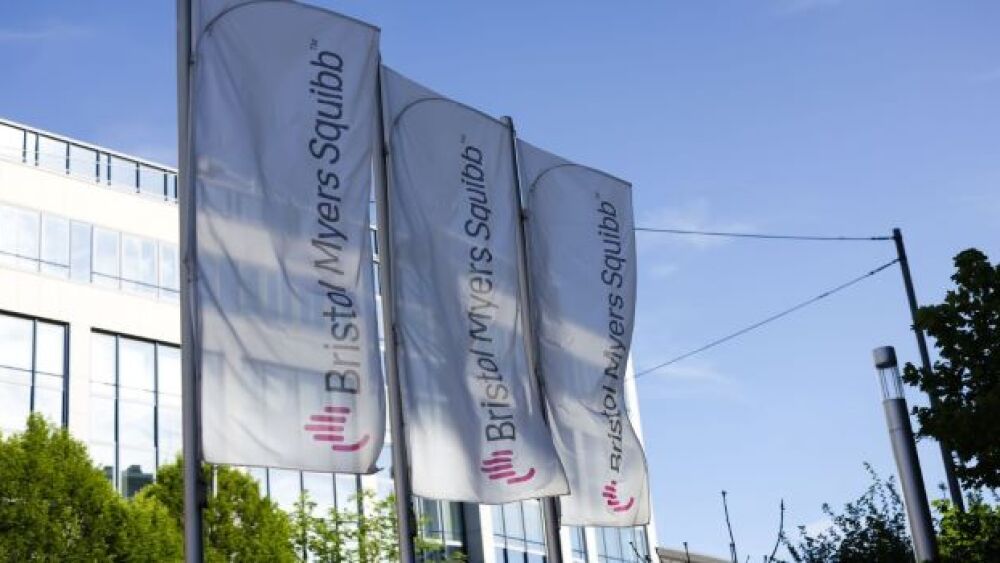The FDA delayed Bristol Myers Squibb’s (BMS) target date for Reblozyl, approved the company’s melanoma drug and Japan accepted BMS’ NDA for Breyanzi.
Courtesy of Jeremy Moeller/Getty Images
Bristol Myers Squibb has had a particularly busy week. On Friday, the U.S. Food and Drug Administration (FDA) added three months to the target action date for the company’s supplemental biologics license application (sBLA) for Reblozyl (luspatercept-aamt) for anemia with non-transfusion-dependent (NTD) beta thalassemia.
The PDUFA date is now June 27, 2022. The drug is being developed in partnership with Merck & Co., after Merck acquired Acceleron Pharma in November 2021.
The agency indicated that after it asked for extra data, the data BMS supplied was a major amendment and would require more time to review.
Reblozyl is a first-in-class erythroid maturation agent. It is already approved in the U.S. for anemia in adults with beta thalassemia who require regular red blood cell (RBC) transfusions and for anemia failing an erythropoiesis-stimulating agent and require two or more RBC units over eight weeks in adults with very low- to intermediate-risk myelodysplastic syndrome with ring sideroblasts (MDS-RS) or with myelodysplastic/myeloproliferative neoplasm with ring sideroblasts and thrombocytosis (MDS/MPN-RS-T).
The sBLA was built on data from the pivotal Phase II BEYOND trial that studied Reblozyl plus best supportive care in patients with NTD beta thalassemia. It is also under review by the European Medicines Agency (EMA).
BMS also announced Friday that Japan’s Ministry of Health, Labour and Welfare (MHLW) accepted the supplementary New Drug Application (sNDA) for Breyanzi (lisocabtagene maraleucel) for second-line treatment of relapsed or refractory large B-cell lymphoma ( r/r LBCL). Breyanzi is a CD10-directed chimeric antigen receptor (CAR) T cell therapy.
The sNDA was based on data from the TRANSFORM clinical trial in patients with r/r aggressive B-cell non-Hodgkin lymphoma. The trial was run in Japan, the U.S., and Europe.
LBCL is made up of several disease types, including diffuse LBCL, which is the most common type of non-Hodgkin lymphoma in Japan. It makes up 30-40% of all B-cell cases diagnosed in Japan and is particularly common in people in their 60s. There are presently no established standard-of-care treatment protocols for patients with r/r LBCL.
“I am pleased we are the first company in Japan to file an application for a cell therapy in second-line relapsed or refractory large B-cell lymphoma,” said Makuto Sugita, Vice President, R&D Japan, Bristol Myers Squibb K.K. “This filing brings us one step closer to delivering a potentially practice-changing treatment for primary relapsed or refractory large B-cell lymphoma, making Breyanzi available to more patients in need, and underscores the advancements we’re making in cell therapy research to transform the lives of patients with difficult-to-treat blood cancers, including lymphoma.”
Brenyanzi is approved in the U.S. for adults with r/r LBCL after two or more lines of systemic therapy, including diffuse large B-cell lymphoma (CLBCL) not otherwise specified (including DLBCL arising from indolent lymphoma), high-grade B-cell lymphoma, primary mediastinal large B-cell lymphoma, and follicular lymphoma grade 3B.
A week ago, the FDA approved BMS’s Opdualag (nivolumab and relatlimab-rmbw) for adults and children 12 years and older with unresectable or metastatic melanoma. The approval was based on data from the Phase II/III RELATIVITY-047 trial that compared Opdualag to BMS’s Opdivo (nivolumab) alone. Opdualag is a fixed-dose combination of nivolumab and relatlimab given via a single intravenous infusion.
The RELATIVITY-047 trial hit the primary endpoint, progression-free survival (PFS), with Opdualag more than doubling the median PFS compared to Opdivo monotherapy —10.1 months compared to 3.5 months.
“Since the approval of the first immune checkpoint inhibitor more than 10 years ago, we’ve seen immunotherapy, alone and in combination, revolutionize the treatment of patients with advanced melanoma,” said Dr. F. Stephen Hodi, director of the Melanoma Center and the Center for Immuno-Oncology at Dana-Farber Cancer Institute. “Today’s approval is particularly significant, as it introduces an entirely new combination of two immunotherapies that may act together to help improve anti-tumor response by targeting two different immune checkpoints — LAG-3 and PD-1.”





